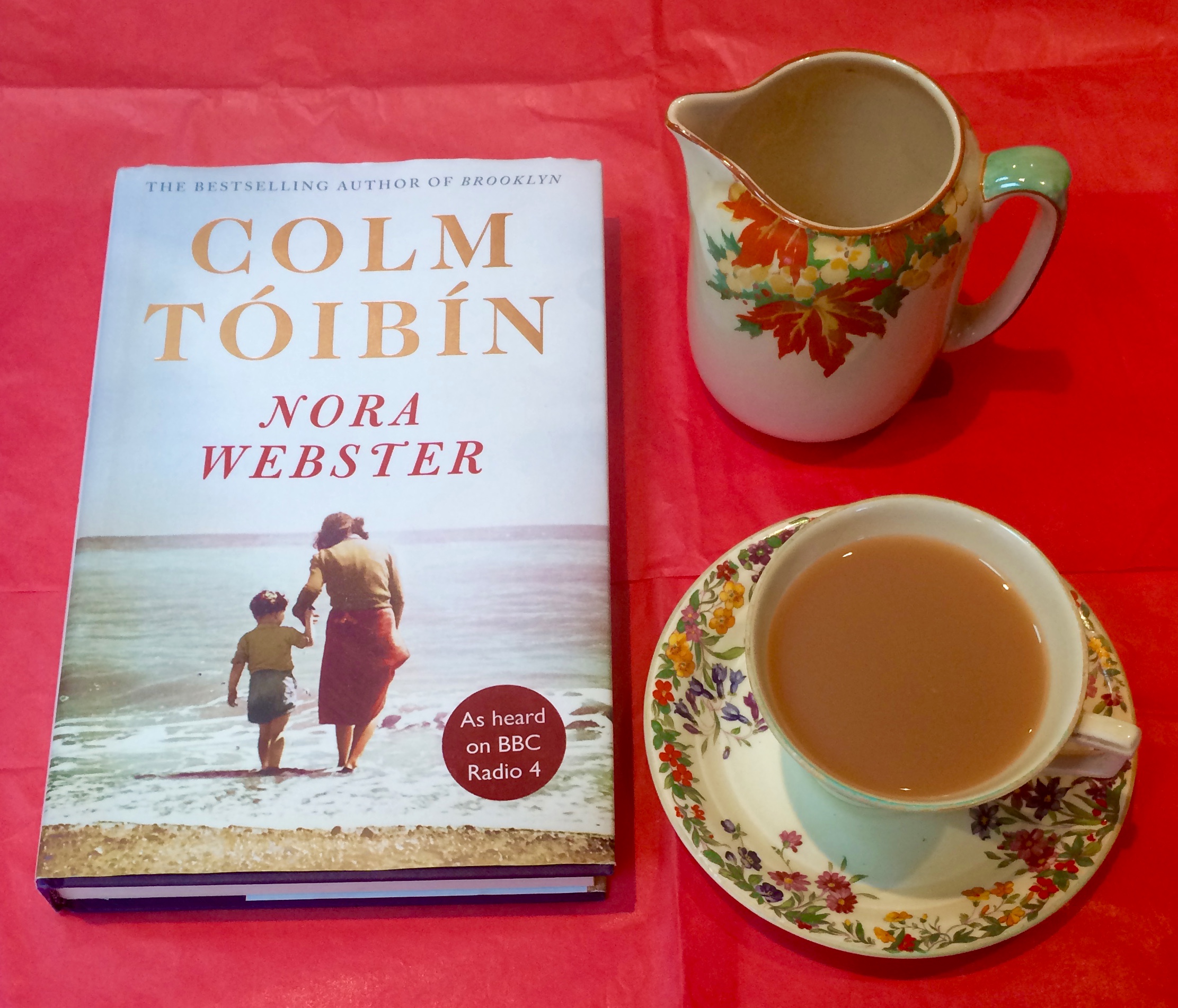A friend has been singing the praises of Colm Toibin to me for quite some time. It was only when he physically handed me a copy of Nora Webster, Toibin’s latest offering that I was finally persuaded to see for myself what a great story teller Toibin is.
Nora Webster is set in Ireland in the 1960’s. The troubles are looming and Nora’s husband of 21 years has recently died. She is left a single mother of 4. Two daughters who are away studying and two younger sons, Donal and Conor. Her world as she knew it is shattered. Maurice was the love of her life. His death brings with it not just the loss of her marriage and partnership but also material loss as she has to sell the family beach house and go back to a job she hates and left years ago. Over time she discovers music and with it a piece of her self, so that gradually the healing process can begin as she rebuilds her life and the life of her family.
The story opens with Nora on her doorstep dealing with the aftermath of yet more visitors bringing condolences. Her weariness and sadness are plainly evident. For me this sets the tone of this novel which explores grief and loss as experienced by a woman in a small town where she is known by everyone. Her newly single status changes how people behave toward her. Even those who think they are being understanding leave her feeling bruised and upset.
“She wondered if she could go back into the house without having to answer him again. He was using a new tone with her, a tone he would never have tried before. He was speaking as if he had some authority over her”.
The process of learning to live as a single parent and manage the impact of being alone is examined sensitively as Nora’s rawness and vulnerability is played out on the page.
“In future, she hoped fewer people would call. In future, once the boys went to bed, she might have the house to herself more often. She would learn how to spend these hours. In the peace of these winter evenings, she would work out how she was going to live.”
There is a scene in the book when Nora is in a busy bar surrounded by people which beautifully sums up the loneliness of a crowded room.
“So this is what being alone was like, she thought. It was not the solitude she had been going through, nor the moments when she felt his death like a shock to her system as though she had been in a car accident, it was this wandering in a sea of people with the anchor lifted, and all of it oddly pointless and confusing”.
We learn that Nora is flawed. She is not always easy to be around, she can be prickly and she was never as popular as Maurice. Her sisters find her difficult and she can easily offend. She has an awkward relationship with her eldest son Donal. He stutters and is unable to express his grief and hides behind his love of photography. In the same way Nora loses herself in classical music. Despite this or maybe because of it she has a steeliness and determination which ensures her survival and that of her family. She refuses to be beaten down by those who think little of her and gradually makes new friends and develops new interests she would not have had if Maurice was alive. I enjoyed this stretching of her wings as she immerse her self in a new and uncertain world.
This is such a well written story. Perfectly sparse prose, raw in emotion, and a cleverly crafted character study of one woman’s steady path through loss and grief as she learns how to live again.
Needless to say this may have been my first Toibin but it most certainly won’t be the last.
image, Changing-pages

